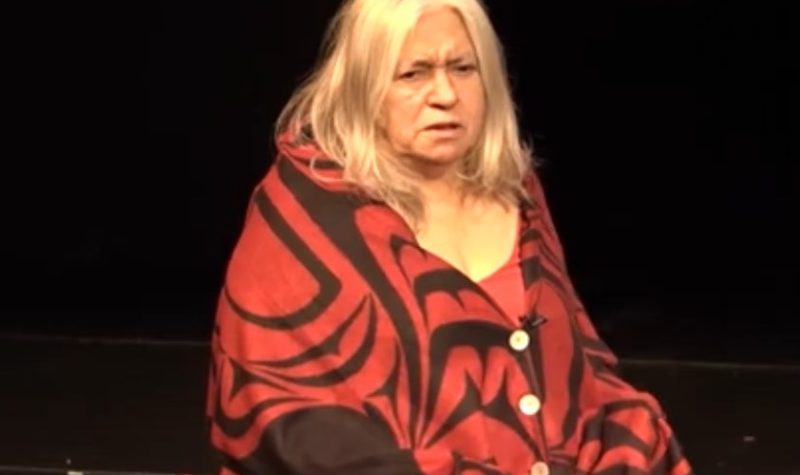Lee Maracle, a prominent Indigenous author, poet, activist, and scholar, passed away Thursday in hospital.
In the wake of her passing, thousands of Canadians have taken to social media to share how Maracle has inspired and enlightened them throughout the years.
Born in Vancouver in 1950, Maracle was the granddaughter of Tsleil-Waututh Chief Dan George. She belonged to the Stó:lō Nation and had Métis and Coast Salish heritage.
Throughout Maracle’s life, she advocated for Indigenous rights, particularly the rights of Indigenous women. She became involved in the Red Power movement in the early 1970s, an initiative formed by Indigenous rights advocates with the goal of achieving self-determination.
Maracle published her first book in 1975, an autobiography titled Bobbi Lee: Indian Rebel. Many of her works, such as I Am Woman and Sojourner’s Truth, published in 1988 and 1990 respectively, explore the effects of settler colonialism and Western ideals on the everyday lives of Indigenous people in Canada.
In 2020, Maracle was selected to deliver the Margaret Laurence lecture to the Writer’s Trust of Canada. Her speech addressed the way Indigenous women are treated in Canada, saying Indigenous women “continuously come last.”
“Canada puts Indigenous writers—particularly Indigenous women—last,” said Maracle in her address. “I do not accept it, but I get it. Conquest is understandable, but not acceptable. I get it because if you accept that we are here first, then you would lose your place here. And all this conquest would be for naught. Although I'm grateful for an opportunity to speak, I am still aware of how irrelevant you have made us.”
When Maracle began writing in the 1970s, she was one of the first Indigenous women in Canada to have a book published. Maracle is now known as one of the most prominent Canadian writers, with many of her works continuing to be bestsellers.
Maracle’s writing and activism largely revolved around the lives of Indigenous women in Canada. In the preface of I Am Woman, Maracle states that she wrote “to empower Native women to take to heart their own personal struggle.”
“The road to Hell is paved with good intentions,” said Maracle. “The road to my Hell—which is the murder of Indigenous women—is covered with good intentions: the intent to civilize, Christianized, and anglicize. It had an objective not to pursue religious freedom, but to occupy this land.”
In addition to being a writer and an activist, Maracle was also a respected scholar who held several academic positions, including at the University of Waterloo, Western Washington University, the University of Guelph and the University of Toronto. Maracle has also won numerous awards, including the J.T. Stewart Voices of Change Award in 2000 and an American Book Award from the Before Columbus Foundation, also in 2000. Maracle was made an Officer of the Order of Canada in 2018, one of Canada’s highest honours.
In her Margaret Laurence address, Maracle talks about the colonial anglicization of her people throughout her childhood.
“I...walked a terribly lonely journey to maturity,” said Maracle. “Force and isolation tagged along with anglicization. No parent wants their child to be isolated, and then beaten for letting a word slip out that the foreigners did not understand. Many parents stopped speaking their language to their children. This separated us from each other.”
Maracle herself has worked tirelessly to aid the revitalization of Indigenous languages and culture in Canada. She was a professor of Aboriginal studies at the University of Toronto, and in 1981, she co-founded the En’owkin Centre in Penticton, BC. The educational institute offers an Indigenous Fine Arts Program and an Okanagan Language Program.
Maracle passed away on Thursday, Nov. 11, at the Surrey Memorial Hospital in Surrey, BC. She was 71 years old.
Listen to the CHUO story below:


